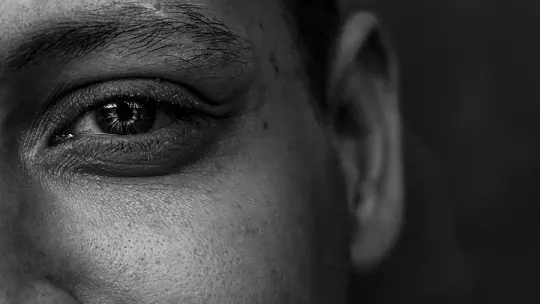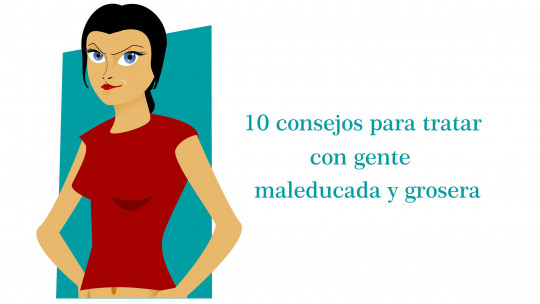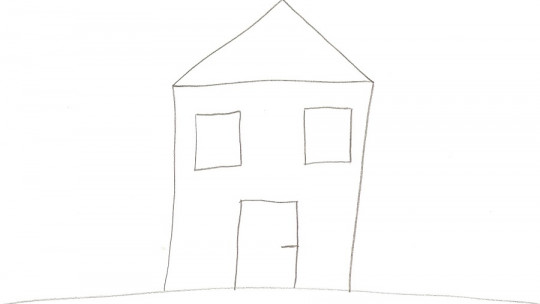
How we interpret the things others do is crucial to our personal well-being, since it largely determines the way we react and the decisions we make accordingly. For this reason, the human brain tends to perform tricks to make this interpretation biased and tendentious. Let’s look at some examples: Imagine the following situation.
You go out to get some air in the garden, and over the fence you see the new neighbor who moved in next to your house the week before. The man looks upset, his brow furrowed, and you can almost hear him grumbling under his breath.
A few minutes later he begins to raise his voice. At one point, his wife approaches him to ask him a question and he answers her in a very bad way. Immediately afterwards he begins to yell at his two young children who do not stop running around him, playing something that seems to be very irritating to the father.
“The others are to blame for everything!”
In circumstances like this, it is expected that your brain, neither quick nor lazy, quickly fires off a whole series of speculations about what you are observing. The conclusion seems simple and irrefutable: Your neighbor has a terrible character, he is a grumpy and authoritarian guy who you could never make friends with
A couple of days later, you are calmly having breakfast with your partner, when he or she comments to you in passing: “Oh, did you see the neighbor who moved next door…? Poor man, he is desperate, I have heard that as soon as he finished paying for the new house, he was fired from work, and now he doesn’t know how to support the family.”
Adapting to new information
Let’s see… This new additional information colors the opinion you had formed about the new neighbor in a different color, right?
The hypothetical anecdote does nothing other than illustrate one of the most damaging flaws of the human brain: we are very predisposed to criticize the reprehensible behavior of others, attributing it to their supposed bad character, or to a defect in their personality; and we lose sight that there are always external forces or influences that help shape behavior.
And what is worse, if we are the protagonists of the story and someone accuses us of having a bad temper, we immediately justify ourselves by saying: “Well, what happens is that I am very nervous because I lost my job.”
This is how it happens most of the time; This is a dynamic that underlies the dark, fallible side of our brain: others have full responsibility for their misconduct Their unhappy or ill-advised decisions are the result of the person’s own defects.
On the contrary, when we are the offenders of good manners and healthy customs, we quickly find an explanation that is given from outside to justify the alteration of our good character, and thus leave our reputation and self-esteem safe. Simplifying a bit: If So-and-So reacts with violence, it is because So-and-So is an aggressive person. On the other hand, if I am the one who reacts with violence, it is because I am tired since I couldn’t sleep a wink all night.
Guilt: a question of perspective
Everything we do, even the bad thing, no matter how inappropriate, always constitutes, for our brain, the appropriate response to a given situation.
From our perspective, we can only see the angry neighbor. That is, all his obfuscation occupies the center of our attention. Instead, When we are the ones involved, we can only see our circumstances ; What happened to us today, whether we were fired from work, had a headache, or had our car’s GPS stolen, seems reason enough to vent our anger on the world or others. It is as if the brain is whispering in our ears: “Hey, come on… I know you are a good person, but you live in a bad and hostile world.”
It is important for the reader to know that everything you pay attention to will inevitably become part of your world, and everything you do not pay attention to or decide to ignore will simply cease to exist for you, it will remain outside of your reality. everyday life, with all that that implies, for better or worse.
Biases that protect us
It is crucial to understand this type of mental bias that appears when we observe our own behavior and that of others, because it can lead us to exaggerated or dramatic value judgments, which together can open deep fissures in society.
For example, those people who classify the unemployed or those who receive government assistance through social plans as “lazy,” “lazy,” or simply “people who don’t feel like working,” all inherent personality characteristics, tend to be supporters of the “iron fist”, “zero tolerance” and economic and cultural discrimination in a broad sense.
On the contrary, people who believe that there are people who were born and raised in very unfavorable conditionsthey have a more humanitarian and compassionate worldview, they participate more in charitable organizations and they vote for left-wing political parties.
The role played by necessity
It also turns out that our own needs are a parameter by which we measure all things Of course, we don’t realize it, but that’s how selfish we are.
If what you need is, for example, to feel loved and respected, then probably your wife (who does not have the same need as you) in the face of a certain disagreement may come to seem like a cold and unloving person.
Of course, if she is the one who needs to feel loved and not you, then your wife will seem insecure and demanding to you. And as we saw before, some aspects, such as the fact that she had a problematic childhood in which her parents did not give her much love, she passes into the background or falls directly into oblivion.
Another possibility: If you need to do everything quickly because you have an anxious nature and are easily impatient, then the McDonald’s cashier who is dedicatedly serving the customer in front of you in line will seem slow, ineffective, lazy, or all of the above together.
Now, if you are on vacation and you are feeling especially calm and relaxed, and you want to carefully choose what you are going to eat that day, the people who are behind you in line and rush you to place your order and rush to a On the other hand, they will seem like a group of neurotics and frantic rude people.
If you are the kind of person concerned with order, cleanliness, and perfectionism, who is interested in the details in every task you perform; It is very likely that your new partner will seem irresponsible and disorganized to you. But if he is the one who has all these needs that revolve around neatness, then he will label his partner as an unbearable obsessive maniac.
How to solve the problem?
I think the first thing we have to do is fully understand the biased dynamics that our brain uses to harshly evaluate the behavior of others, and more benevolently our own behavior.
Perhaps a greater degree of self-awareness will help us take responsibility for our own actions. and the decisions we make, especially when we face a problem or in times of stress.








